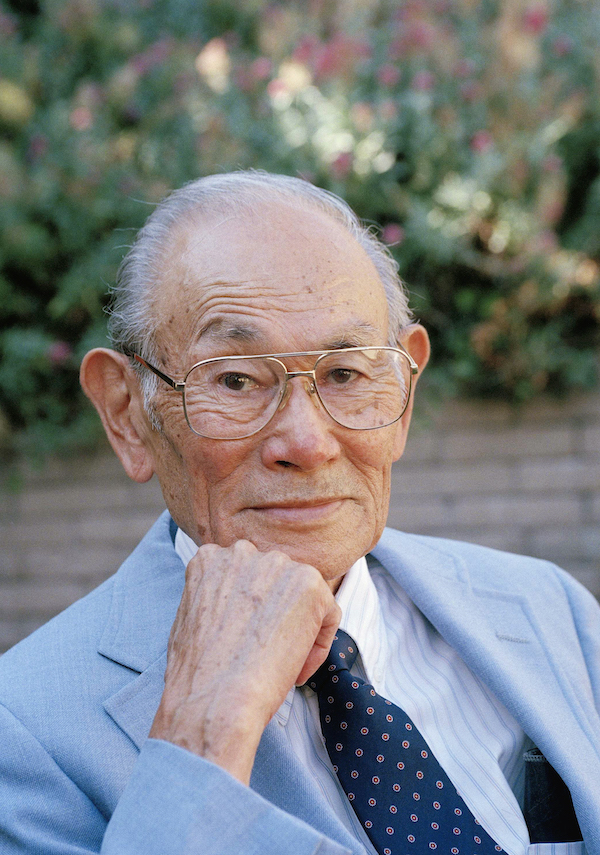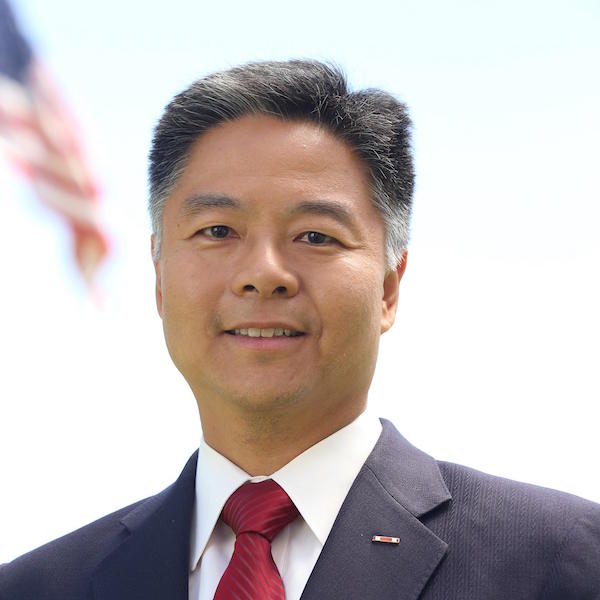Fred Korematsu was a Japanese American civil rights leader most famous for his refusal to go to the internment camps during World War II, resulting in a controversial (and still standing) Supreme Court ruling and, much later in the 1980s, a victory with the American Civil Liberties Union in a San Francisco U.S. District Court.
As President Donald Trump’s executive order on the Muslim ban continues to ignite protests across the country, more than ever, Korematsu’s lasting advocacy against racial and ethnic scapegoating rings loud.
Jan. 30 is Fred Korematsu Day of Civil Liberties and the Constitution. Here are 5 quotes from the Medal of Freedom recipient:
On prejudice
“Fears and prejudices directed against minority communities are too easy to evoke and exaggerate, often to serve the political agendas of those who promote those fears. I know what it is like to be at the other end of such scapegoating and how difficult it is to clear one’s name after unjustified suspicions are endorsed as fact by the government. If someone is a spy or terrorist they should be prosecuted for their actions. But no one should ever be locked away simply because they share the same race, ethnicity, or religion as a spy or terrorist. If that principle was not learned from the internment of Japanese Americans, then these are very dangerous times for our democracy.”
-To the San Francisco Chronicle, 2004
On growing up American
“When I was in school, we started each day with the ‘Pledge of Allegiance’ to the American flag. I studied American history and the Constitution of the United States, and believed that persons born in this country was free and had equal rights. I’ve always been a good American citizen, I was willing to defend my country before the attack by Japan on Pearl Harbor in 1941. I had tried unsuccessfully to join, first, the National Guard, and then the United States Coast Guard. My Caucasian friends were accepted, but I was turned down. Later, I participated in defense work until the union forced me out without a reason. When the exclusion order was posted on telephone poles in 1942, I felt angry and hurt and confused about my future. I could not understand how the United States government could do this to American citizens without a hearing or a trial. It was not right that all Japanese Americans were interned while Americans of German or Italian descent were allowed to be free. For forty years, I have carried with me the remembrance of being treated like a criminal, and classified as an enemy alien of the United States, even though I was born in Oakland, California. I feel that as an American citizen, I did not do anything wrong. I have always felt that the United States Supreme Court’s approval of putting American citizens into concentration camps on the basis of race is unforgivable and should be corrected. I wanted you to know that Japanese Americans are loyal American citizens, and obey the laws of the land.”
On looking like “the enemy”
“According to the Supreme Court decision regarding my case, being an American citizen was not enough. They say you have to look like one, otherwise they say you can’t tell a difference between a loyal and disloyal American. I thought that this decision was wrong and I still feel that way. As long as my record stands in federal court, any American citizen can be held in prison or concentration camps without a trial or a hearing. That is if they look like the enemy of our country. Therefore, I would like to see the government admit that they were wrong and do something about it so this will never happen again to any American citizen of any race, creed or color.”
–To Judge Marilyn Hall Patel of the U.S. District Court of San Francisco, 1983
On remembrance
“I’ll never forget my government treating me like this. And I really hope that this will never happen to anybody else because of the way they look, if they look like the enemy of our country.”
On activism
“If you have the feeling that something is wrong, don’t be afraid to speak up.”







